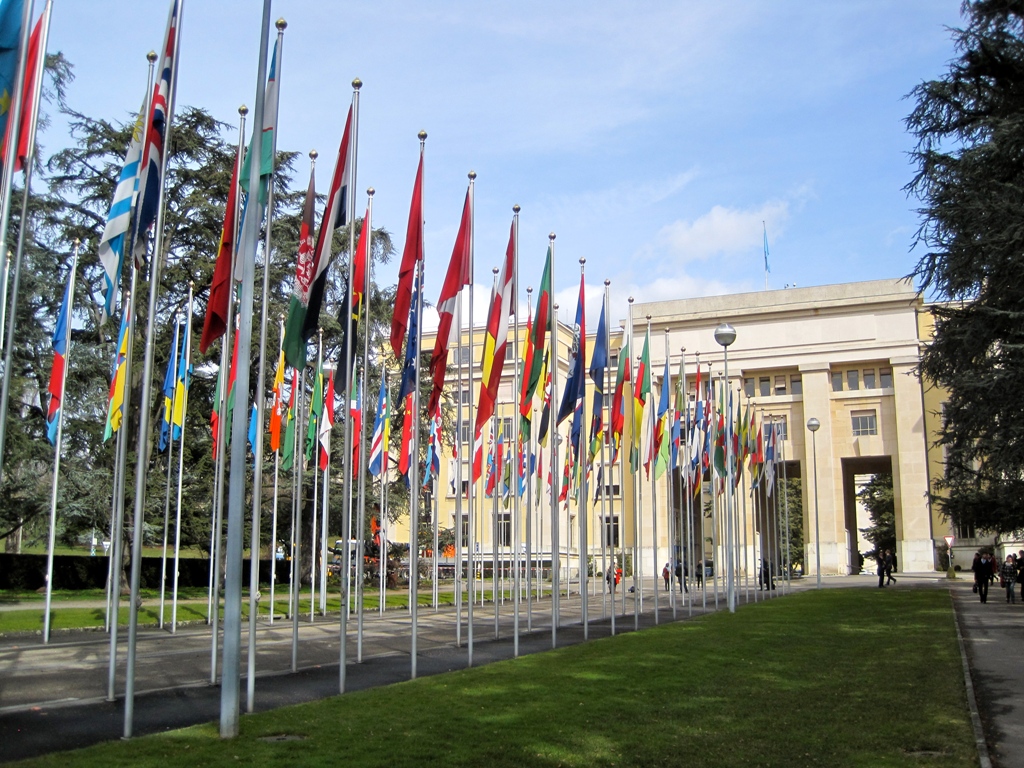September 13, 2017 
Ten years ago today, the United Nations adopted the Declaration on the Rights of Indigenous Peoples. The Declaration remains one of the most significant development in international human rights law in decades, and it has sparked important conversations and actions regarding indigenous peoples’ rights, including rights of self-determination and self-government, rights to land and resources, and protection of cultures and languages.
The Center is proud to have been a part of the 30-year process to secure the adoption of the Declaration. From 1977 to 2007, we advocated for a human rights instrument to protect the rights of indigenous peoples and guarantee their permanent place in the global community. Over the last ten years, we have continued our work to ensure the promises in the Declaration are realized, and, in spite of persistent challenges, we have seen some real improvements in laws, policies, and practices nationally, regionally, and internationally.
In the United States, the Obama Administration began holding an annual White House Tribal Nations Conference and, over the following eight years, in addition to reversing the United States’ opposition and endorsing the Declaration in 2010, federal agencies made strides toward updating their policies and plans to implement the Declaration. It remains to be seen whether these good practices will continue under the Trump administration. Congress adopted breakthrough legislation to advance and protect the sovereignty of tribal nations such as the 2010 Tribal Law and Order Act, the 2013 Violence Against Women Reauthorization Act and the subsequent repeal of its Section 910, which had excluded Alaska Native villages from many key advances. And the judicial branch made clear decisions to uphold tribal authority to exercise civil jurisdiction over non-Indians in Dollar General and to recognize the Bureau of Indian Affairs’ authority to take lands into trust for Alaska Native tribes in Akiachak.
In the region, the Organization of American States, after almost 30 years of debate, adopted its own Declaration on the Rights of Indigenous Peoples. The American Declaration furthers rights in the UN Declaration especially those relating to treaties and to the recognition and application of indigenous juridical systems. It also contains provisions that address the particular situation of indigenous peoples in the Americas, including articles relating to the rights of indigenous families and children, the rights of indigenous peoples in voluntary isolation or initial contact, the rights of those living under internal armed conflict, and rights to intellectual property. In June, 2017, the OAS formalized an action plan to implement the American Declaration, which includes giving consideration to developing an implementing body for Declaration and holding an annual meeting to review, in collaboration with indigenous peoples’ representatives, the progress toward putting the Declaration into practice.
In the United Nations, there is now an expert body tasked with monitoring countries’ compliance with, and responding to violations of, the UN Declaration. The Expert Mechanism on the Rights of Indigenous Peoples (EMRIP) now has a much broader mandate and greater authority to seek and gather information, including by conducting country visits, to advise and assist member states regarding their domestic laws and policies, and to conduct studies and report to the Human Rights Council on efforts to achieve the ends of the Declaration. All of these activities are essential to any international implementing and monitoring body. Indigenous leaders must be aware of, and utilize, this new tool at the UN.
The UN has also been studying and debating how to enable the participation of indigenous governments at the UN. The President of the General Assembly held several consultations with member states and indigenous peoples in 2016 and 2017. While consensus hasn’t been reached yet, last week the UN General Assembly committed to a multi-year calendar of consultations and dialogue with indigenous peoples’ representative institutions to enable their participation.
Implementation of the Declaration is and will continue to be the work of generations across borders. We will need to work together to truly see the principles and promises of the Declaration come to fruition. We encourage indigenous leaders and tribes to engage in UN processes and meetings and welcome the opportunity to support their efforts. For more information about our work visit www.indianlaw.org/wcip.
